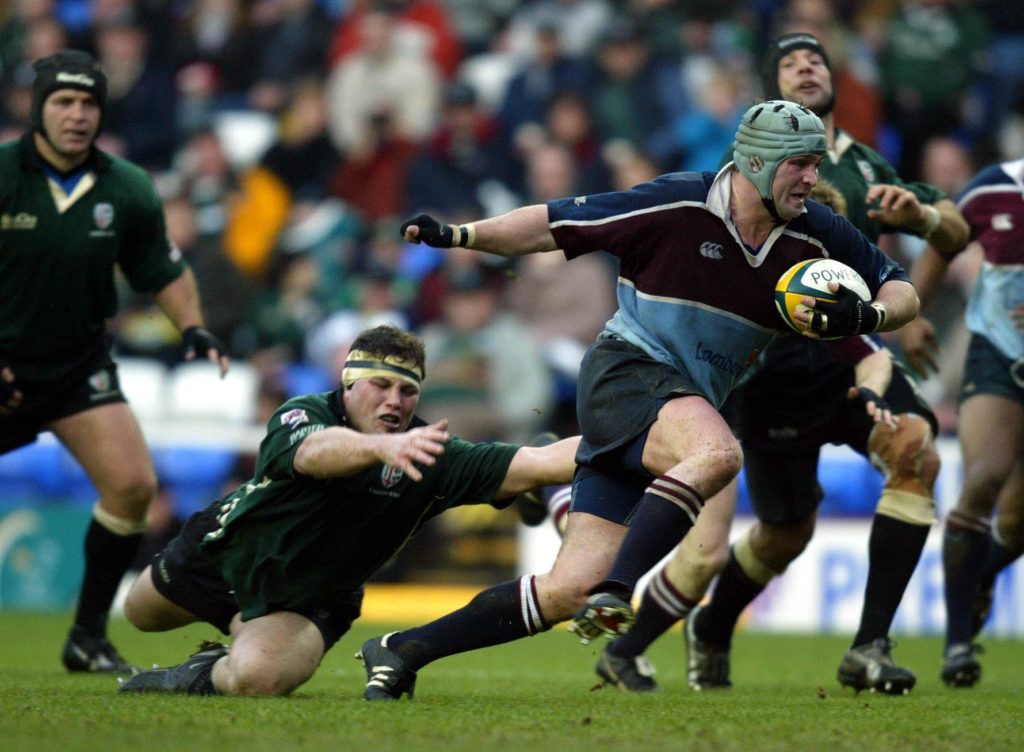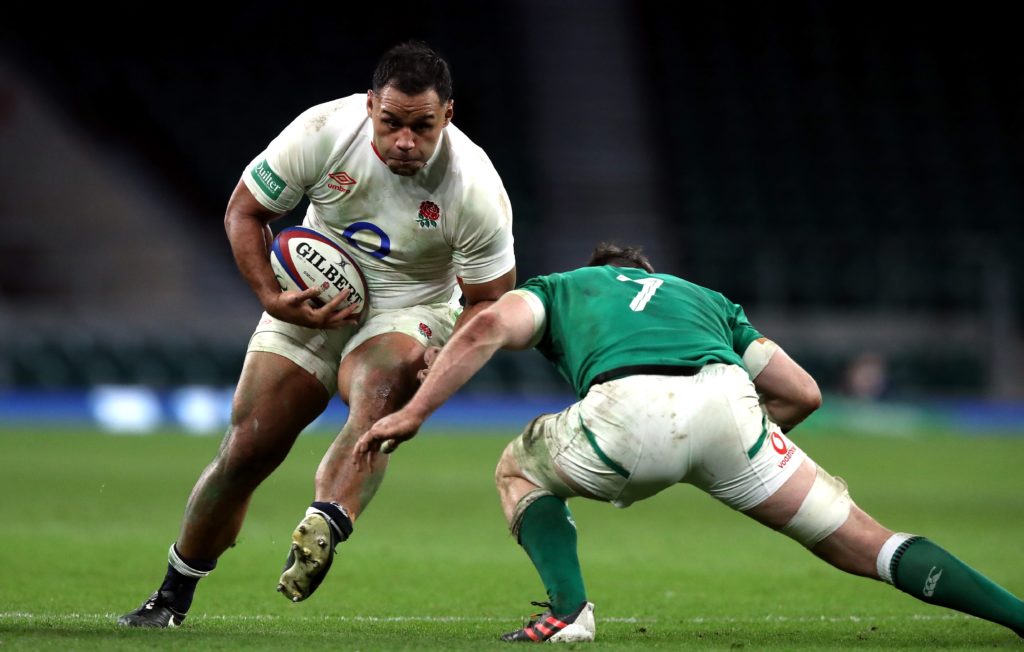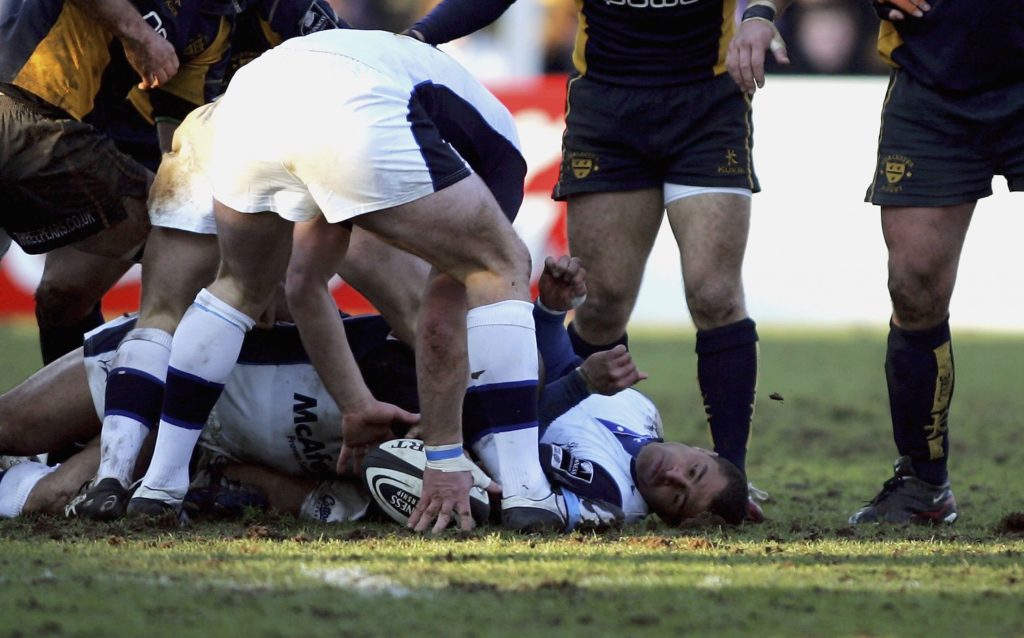The interview with Neil Spence is conducted over the phone. Covid restrictions demand it is so. And while it Is not possible to read the former professional rugby player’s facial expressions or body language in the same way a normal face-to-face interaction would have enabled, it is very quickly clear the former Rotherham, Gloucester and Leicester journeyman struggles to recall times, places, events.
Spence’s words are sometimes slurred, his memory permanently blurred, while his pronunciation is occasionally pock-marked by a characteristic stutter I’ve heard countless times while interviewing brain-impaired former professional athletes over the past eight years; almost all of those athletes have been former professional rugby players.
For Spence, a born-and-bred Yorkshireman who claims to have received significant bangs to the head “almost every game I played”, the tell-tale signs of dementia are undeniable. The formal diagnosis came recently. For those who know him best, it came as no great surprise.
I feel a bit slow with everything I do. I have to think meticulously about where I’m going, what I’m doing, what I need to take.
Neil Spence
Spence is 44 years old with a fiancée and three children. The youngest of them, Millie, is nine.
“Day to day is a bit of a struggle,” he says. “Just general confusion. General tasks. I feel a bit slow with everything I do. I have to think meticulously about where I’m going, what I’m doing, what I need to take. I’m working as a schoolteacher. Have I got my laptop bag? Have I got all my pens and everything else?
“I’ve become very hesitant in a car. I live on an estate and I’ll drive to the top of the road where there’s a roundabout and Sarah will have to say pretty much every time we get to it where we need to go. Even though I know exactly where I’m going when I leave the house, by the time I get to the roundabout I’m completely blank. No idea whatsoever where I’m meant to go. Do I turn left or right? No idea.
“I’ll leave things in the wrong places and not notice. Sarah has found dirty dishes in the fridge and food items in the dishwasher. I’ll leave things on. The oven. The iron.
“The main thing that made me think everything wasn’t OK was when I went to pick up my two children from nursery one afternoon but drove past their nursery completely and went to set up for a coaching session. I was working as an RFU community coach at the time. I was meant to be picking my kids up from nursery but by the time I realised, the school had closed. It was only 500 yards down the road but I was in completely the wrong location. That was eight years ago.”

Remarkably, the flanker who played for Rotherham, Leicester and latterly Ilkley, where he finished his career as player-coach, is the oldest of the six claimants in the legal case against World Rugby, the Rugby Football Union and Welsh Rugby Union who have so far gone public in recent weeks. All have been diagnosed with varying forms of neurodegenerative disease, which their medical teams say have been caused by repeated head injuries sustained during their professional rugby careers. The law firm representing them, Rylands, claim there are already more than 100 other potential claimants.
Some believe their legal action could bring the sport to his knees as a professional entity, although RFU chief executive Bill Sweeney has stated his belief English Rugby’s governing body possess adequate insurance cover to ride out the storm.
Others believe the action will bring long-overdue change and rebalance a sport that has seen both the frequency and ferocity of collisions in matches and training increase dramatically since it turned professional in 1995.
Either way, the latest development in a story that has been simmering for more than two decades has given a voice to former players facing years of lost earnings and a future of emotional and physical hardship as the result of being beaten up for a living.
There are, unquestionably, many more like Neil Spence out there. Young men, and potentially women, who shed blood on the field and who are now suffering the consequences. Rugby can choose to embrace them or shun them.
Time and again as we talk, Spence pauses before the phone goes muffled and he calls Sarah to clarify facts or detail which for him is lost forever.
I ask if Sarah, an NHS manager, would mind speaking with me. She takes the phone.
“In 2012, things started getting really strange. I noticed the change in his personality. He was just so up and down and moody. He’d get cross when nothing had happened.
Spence’s fiancée Sarah
“Towards the end of his career, after we’d had Millie, I remember waking up on a Sunday morning next to him, and we do joke about it you know, but he just used to look like somebody different on the pillow. His face was that swollen, cut. His body was just full of dents and scrapes and he’d be struggling to walk on a Sunday. I’d be like, ‘Come on honey, enough is enough, let’s hang up your boots’. But he absolutely loved it.
“In 2012, things started getting really strange. I noticed the change in his personality. He was just so up and down and moody. He’d get cross when nothing had happened. He’s the most chilled-out, fun-loving guy you could ever meet. A gentle giant. But he’d changed. I could see it was upsetting him because he couldn’t tell me why. It wasn’t like we’d had a row or an argument but he would just snap. I’d be like, ‘Honey, what’s the matter? What’s happened?’ He didn’t really know.

“I felt like I was with a different person, absolutely. It just wasn’t him. The doctors put him on anti-depressants and beta-blockers to help him with his moods. He’d just curl up and cry on the sofa and say he wanted to end it because he was no use to anyone.”
Spence’s formal diagnosis of neurodegenerative disease with clinical signs of Chronic Traumatic Encephalopathy – the same brain disease found in deceased boxers in the 1920s and former American footballers in the early part of the 21st century – is expected be challenged in court by rugby’s governing bodies. Unless that is they look to settle out of court without admitting liability.
Normally I enjoy watching rugby but actually the enjoyment of it has become quite painful because now I’m seeing the clashes of heads.
Neil Spence
While the legal case will focus on what the sport did in the early days of professionalism to mitigate risk against concussion and what they knew of the long-term effects, Spence also has concerns for what future generations of players will have to go through now it is clearer the toll playing professional rugby for more than a decade can take on the human body.
“I still love the game and I still watch the game,” says Spence. “This weekend was the first time I’ve watched a game since my diagnosis less than a month ago. Normally I enjoy watching it but actually the enjoyment of it has become quite painful because now I’m seeing the clashes of heads. Knees to heads, obviously accidentally and not in a dirty way but just part of the game. I’m thinking, ‘Blimey this is still going on, this is what has happened to me and players will be in the same situation 10 or 15 years down the line and feeling like me’.”

Sarah is also thinking about the future. The uncertainty and fear is tangible. While dementia has been formally diagnosed, no one can accurately predict how fast the disease will progress. One thing is for certain; things will not improve.
“I cry every day. When the kids go to school I’m just in floods of tears,” adds Sarah. “It’s hard because I want to hide it from the kids. I don’t want them to see mummy upset. And I’ll lie in bed at night and say, ‘Can we stop talking about it?’ Whereas Neil seems to be coping a lot better. He’s more, ‘Let’s just carry on as normal’. Whereas for me, and I know it sounds sad and morbid, but the thought of not having him around is absolutely devastating.
“We’re a family. We have young kids. We do everything together. Even if we’re just going to the shop we all pile in the car together. We just do everything. The thought of him not being involved in that…
“We have a bit of a laugh on December 1 when we say, ‘It’s time to deck the house up’ and it’s his time to get up the ladder. Neil absolutely hates it, but we all love it. We have a bit of a laugh and a joke. We have about six Christmas trees.
“We do have a joke but it’s the stuff like that which gets me. Who’s going to put all the lights up on the Christmas tree if daddy’s not here?”
More from Sam Peters
If you’ve enjoyed this article, please share it with friends or on social media. We rely solely on new subscribers to fund high-quality journalism and appreciate you sharing this so we can continue to grow, produce more quality content and support our writers.


Comments
Join free and tell us what you really think!
Sign up for free